



















APRIL 2024

























































































































































































Inside: CHAT WITH DI PHELAN On going ‘Beyond the Status Quo’ Features: CREATING A NEW CYBER FUTURE Cyber insurance should be front of mind SME OPPORTUNITY KNOCKS Brokers step up in a challenging SME market

























































With an increasing number of Australian businesses being targets of cyberattacks, staying vigilant against cybercrime is paramount. Several high-profile data breaches have been in the news recently. The latest Australian Signals Directorate cyber threat report identified around 94,000 cybercrime reports in the 2022-23 financial year. This equates to one cybercrime being reported every six minutes.
However, as our cyber feature in this issue demonstrates, while awareness is high, that hasn’t necessarily yet translated into insurance coverage. Penetration for cyber insurance in Australia is still at very low levels. There is a significant opportunity for brokers here. Brokers have an important role in helping clients understand the risks they face. Often, it’s not until businesses directly experience an attack or they know someone who has that they seriously consider putting processes in place to protect themselves and reduce their exposure. With the rise in frequency and sophistication of cyberattacks, cyber insurance is set to become an increasingly important component of business continuity planning. Businesses must become proactive instead of reactive when staying vigilant against cybercrime.
The ongoing Inquiry into insurers’ responses to major flood claims has moved into its next phase. The House Standing Committee on Economics has announced a new batch of public hearings in April and May. Committee Chair Daniel Mulino MP emphasised the critical nature of this phase, stating that “we want to hear firsthand about the floods’ impact on communities” as well as the experiences of “residents and businesses going through the claims process with their insurers”. Brokers play a critical role in helping communities get back on their feet, especially in the aftermath of a major natural disaster.
We look forward to hearing firsthand experiences of the people who have been a as an industry so that we can continue to deliver for people when it matters most.
In the previous issue, we unveiled the upcoming 2024 NIBA Convention theme – “Beyond the Status Quo”. In this issue, the Convention Chair and NIBA’s Past President, Di Phelan, expands on the rationale behind this theme and why it’s incredibly relevant for brokers. Di and our current NIBA President Gary Okely are South Australians, and with the Convention moving to Adelaide this year, they are extremely excited to ensure that everyone attending experiences the best of SA’s warmth and hospitality so they can take back unforgettable memories.

From a regulatory perspective, the government introduced the first tranche of proposed legislation to

Today, strong businesses need easy access to cash fow. Hunter Premium Funding, one of Australia and New Zealand’s leading specialist premium funders is here to help your clients when they need it the most.
Visit HPF.com.au to fnd out how Hunter can help your clients today.
A key part of NIBA’s role is representing the interests of brokers to government and regulators to ensure that all Australians have access to trusted risk advice. NIBA also maintains strong relationships with government, regulators, relevant industry bodies, consumer groups and government agencies.
Last month, legislation was introduced into Parliament to enact Tranche 1 of the Delivering Better Financial Outcomes package. This package of legislation delivers on a number of recommendations from the Quality of Advice Review.
The Bill introduces disclosure and consent requirements for general insurance and consumer credit insurance commissions and increased flexibility for the provision of Financial Services Guides.
Under the proposed legislation advisers who provide personal advice to Retail Clients (as defined in the Corporations Act) must obtain the client’s informed consent prior to receiving commission. Consent does not need to be provided in writing; however, there must be a written record of the consent, i.e. a client declaration or a written record of verbal exchange.
Consent is not required for a renewal provided the original consent included consent to receive commission for subsequent renewals, and the percentage of commission is within the range the client previously consented to.
Shortly after being introduced, the Government announced that a drafting error had been identified that inadvertently removed the exemption to conflicted remuneration for general insurance brokers providing general advice. Treasury clarified that this was not the intent and took steps to rectify the error.
The legislation was referred to the Senate Economics Legislation, where NIBA provided a submission supporting the disclosure and consent provisions as they apply to personal advice. The committee will provide its report by 26 June 2024 before the Bill returns to Parliament to be discussed.

NIBA provided a submission to the Inquiry into the Competition and Consumer Amendment (Fair Go for Consumers and Small Business) Bill 2024, which proposes to introduce a designated complaints regime that will enable designated complainants to submit complaints to the Australian Competition and Consumer Commission (ACCC) via a fast-tracked process.
NIBA’s submission raised a number of concerns, including the impact of the regime on the ACCC’s existing regulatory priorities, the scope of the proposed legislation, and the absence of a formal review process to ensure the regime is meeting policy objectives.
NIBA also provided a submission to the Government’s Inquiry into standardising natural hazard definitions and reviewing the standard cover regime for general insurance products. The consultation proposed to introduce standardised definitions for certain hazard terms, including “fire”, “storm”, “stormwater and rainwater run-of ”, and put forward a number of options for reforming the standard cover regime.
NIBA’s submission supported the introduction of standard definitions for some terms while cautioning against reforms that would stifle competition and innovation or increase consumer confusion.
As always, brokers who have questions about these or any other government or regulatory matters should feel free to contact Head of Policy & Advocacy Allyssa Hextell at ahextell@niba.com.au



































membership organisations nationwide to implement tailored member benefit schemes. Post Covid-19, I was appointed at the Australian Institute of Architects as its National Growth and Development Manager, to lead partnership growth along with membership development and strategic event activities. I enjoyed working on the other side of the corporate world and when the role with NIBA came forward, it was the blending of both sides that I enjoyed so much.
 WAYNE EGELTON NATIONAL PARTNERSHIPS MANAGER
WAYNE EGELTON NATIONAL PARTNERSHIPS MANAGER
What excites you most about joining NIBA?

NIBA CONGRATULATES THE FOLLOWING MEMBERS FOR RECEIVING THEIR QPIB DESIGNATIONS
Daniel Campbell, Regional Insurance Brokers Pty Ltd
Jess Downie, AWIB Pty Ltd
Belinda Winkler, AWIB Pty Ltd



What does your role at NIBA involve?
As the NIBA National Partnerships Manager, my main focus is to develop long-term partnerships and introduce new partners that allow NIBA to support their members’ growth – through the Convention, Awards program and networking events. I also generate opportunities for our partners to demonstrate their market strengths and inform the broker network of product enhancements or new initiatives that may be relevant to NIBA members. I support the placement of media advertisements across the full range of NIBA communications, such as the Insurance Adviser magazine and the Broker Buzz newsletter.
Tell us a bit about your background and experience before joining NIBA?
My background has largely been working for insurance companies, primarily with brokers, for both corporate health and corporate travel insurance. During my tenure at HCF Health Insurance, I spearheaded initiatives that revolutionised industry norms. One notable achievement was the implementation of strategies to enhance broker engagement, resulting in heightened participation levels across various third-party platforms. Additionally, I orchestrated successful endeavours to expand our partnership network, forging alliances with associations and
The teamwork that I have experienced since joining the NIBA team, as it is so small and friendly but punches well above its weight with initiatives that are in place for members. The team does not shy away from doing tasks to a level of excellence that I am sure our members would be proud of. I know from my past experience the important role brokers play across all communities and to be in a position that supports this network of professionals gives me great pride and a sense of achievement.
Moreover, NIBA’s commitment to advocating for the interests of brokers is particularly compelling. In an everevolving regulatory landscape, having a unified voice to address industry challenges and shape policies is crucial.
What is the key to building strong business partnerships?

Nick Galanakis, IFS Insurance Solutions Pty Ltd
James Cassar, Edgewise Insurance Brokers Pty Ltd
Joshua Kerr, Midland Insurance Brokers Australia Pty Ltd
Shweta Nimkar, Lockton Companies Australia
NIBA CONGRATULATES THE FOLLOWING MEMBERS FOR BECOMING ASSOCIATE MEMBERS

Kathrine Boggan, Regional Insurance Brokers T/As – QIB Group Pty Ltd
Thomas Harvie, Marsh










Building a successful and strong business partnership requires a multifaceted approach that encompasses several key elements. Firstly, open and honest communication serves as the cornerstone of any partnership, facilitating clear understanding, alignment of goals, and efective problem-solving. Trust, another fundamental component, is cultivated through consistent actions that demonstrate reliability, integrity, and accountability. Flexibility is also essential in navigating the ever-changing business landscape, enabling partners to adapt to new challenges, opportunities, and evolving needs. Transparency plays a vital role in building trust and fostering


















a collaborative environment where information is shared openly, allowing partners to make informed decisions and work towards common objectives.
How can we reach you?


By prioritising these key elements – open communication, trust, flexibility, and transparency – partnerships can thrive and contribute significantly to the success and growth of businesses involved. Each element complements the others, creating a solid foundation upon which the partnership can build and flourish over time.
















I look forward to the exciting opportunities ahead. Please keep my contact details –email wegelton@niba.com.au and phone 0481 196 820 or 02 9459 4303.




















































TNIBA returned to its ‘spiritual home’ at the Gold Coast last year for its first face-to-face Convention in more than three years, bringing together the broking community under one roof to network, build new and strengthen old relationships, and celebrate the best of what our profession has to ofer. Last year’s Convention was a resounding success – and this year, NIBA plans to go above and beyond, in more ways than one. Insurance Adviser caught up with NIBA Convention Committee Chair and past President Di Phelan, to get her thoughts on why this year’s theme – ‘Beyond the Status Quo’ – is important for brokers, what attendees can expect with the Convention moving to Adelaide, and what exciting things the Committee has in store for attendees this year.
he 2024 NIBA Convention is moving to a new home – the Adelaide Convention Centre –and the excitement is palpable, as planning for an unforgettable experience is well underway.
The move to Adelaide makes sense – a new city brings its own energy and atmosphere – but moreover, this is reflective of the theme for this year’s Convention –‘Beyond the Status Quo’. But what is theme all about? Convention Committee Chair and past NIBA President Di Phelan joins us to help demystify what the theme is and why it’s especially relevant for brokers.

able to bring attendees back to the spiritual home of the NIBA Convention, the Star on the Gold Coast,” said Di.
“Conventions such as these do not just happen without a lot of time, efort and commitment and I am sure all would agree that the Convention chaired by Steven Hill was a resounding success and one that will hold fond memories for those that attended for many years to come.
It’s no secret that last year’s Convention was an overwhelming success. It was the first Convention to be held face-to-face after a gap of more than three years, and the entire community fully embraced this opportunity to once again be in the same room, seeing old and new faces.
“The 2023 Convention was the first full convention NIBA had been able to hold since 2019 and it was important to be









When I reflect back on what made this Convention stand out, a number of things come to mind. The marvellous DJ created a vibe in the room each time we gathered for the plenary sessions. The guest speakers were all engaging and relevant for each broker and all other sessions were planned to start conversations and thoughts about what insurance broking could and in some cases, needs to look like as we move into the future.
“The award presentations are always a highlight for me. We saw a little about the finalists from each state in both the Young Broker and Broker of the Year categories. Vero continues to provide an exceptional experience for all state winners in the Young Broker category, one that is a career highlight for those lucky enough to be involved. We welcome CGU as the new partner of the Broker of the Year award in 2024 and are excited with the new perspective they have brought.”













“Conventions such as these do not just happen without a lot of time, efort and commitment and I am sure all would agree that the Convention chaired by Steven Hill was a resounding success and one that will hold fond memories for those that attended for many years to come.”


















































A new Convention brings with it a new theme. And this year’s theme is: ‘Beyond the Status Quo’. Di elaborated on the rationale behind picking this theme and how it builds upon the theme of last year’s Convention – ‘Reimagine: Think Diferently’.




“During my time as NIBA President, I often spoke about change, something that’s inevitable in broking,” she said.


“At the time, I did not know what insurance broking would look like in 2025 and beyond but knew that it would have to look diferent if brokers were to continue to provide services and the best possible outcomes for clients.

















“In 2023 the theme was ‘Reimagine – Think Diferently’ and the sessions were all about how we all need to start or –for some – continue, the journey to change our thoughts about the way we interact with our clients and how we can use technology as our critical tool, to avoid it becoming a threat to our existence.


“The theme of ‘Beyond the Status Quo’ came about after much discussion and deliberation. We wanted to build on last year and we received tremendous feedback from those who completed the Convention survey. There were some trends that came from this information, all of which will be catered for in the sessions this year.
“Status quo is a Latin phrase meaning the ‘existing state of afairs’. This year, we wanted to go beyond the here and now, with content which will include some practical solutions and suggestions on actions to take for all attendees to go ‘Beyond the Status Quo’ and so the theme was formed.”

the risk of being left behind if we do not start to not just think but actually go beyond the here and now.
“To do this successfully, many brokers are already thinking diferently and investing in that change. Change in their people, change in their culture, change in their technology and change in their client demographic. Change is never easy and is often incredibly difcult to manage, time consuming, and there is little thanks in the end but that should never sway our decisions.
“We are building a great program which will include regulatory updates and information that is vitally important. We are also working on bringing solution providers to the table and putting you in direct contact with them during the Convention. I am particularly excited about what this will look like.”



While there are many conferences that take place, aimed at brokers, in what appears to be an increasingly busy calendar year after year, the NIBA Convention has always held a coveted place, capturing the hearts and minds of all attendees. Di elaborates on what makes this Convention diferent from others out there.
“You only have to talk to any insurer to get an understanding of the Convention fatigue that now exists,” she said. “The fact that NIBA continues to be the strong ‘one voice’ of the insurance broking community, that is an incredibly powerful and unique position that general insurance brokers have when making representations to and having discussions with government and regulators.”
With the broking landscape evolving, this year’s theme has particular relevance for brokers. It’s a call-to-action for the broking community to embrace change, be adaptable and staying ahead of the curve.

“There is little doubt that the world will continue to change, not at the current pace but probably an increased pace and we run the risk of being left behind if we do not start to not just think but actually go beyond the here and now.”
“I am sure I am not alone when I say that often I can get caught in the here and now,” said Di. “I have certainly attended many Conventions where I have walked away with some thought bubbles but once back at the desk, the day to day ‘here and now’ issues take over and those bubbles remain just that, thought bubbles that lead to nothing changing.”
“The world is changing around us at a pace that is challenging to keep up with. Traditionally, brokers and insurance generally has been slow to change and adapt to new ways of thinking and acting. There is little doubt that the world will continue to change, not at the current pace but probably an increased pace and we run




























“Like all professions, brokers will have difering opinions however the fact that the vast majority of the general insurance brokers in Australia are NIBA members, and therefore advocate for that one voice, is something that all members should feel extremely proud of and is something that the NIBA Board and team take extremely seriously.
“So, whilst other Conventions will successfully continue, the NIBA Convention is the only opportunity for all of the insurance community in Australia to come together. To network, collaborate, learn and get stronger together is what makes the NIBA Convention an unmissable event. I would encourage all members to think about sending some of your team to the NIBA Convention this year if you have not done so before or ensure you continue to support this unique event. It would be wonderful to see every member represented this year, ensuring that the knowledge gained during the two days will be taken back to your teams.”





































































































































































“To network, collaborate, learn and get stronger together is what makes the NIBA Convention an unmissable event. I would encourage all members to think about sending some of your team to the NIBA Convention this year if you have not done so before or ensure you continue to support this unique event.”



Attracting talent and ensuring that more people outside the profession become aware of how rewarding a career insurance broking can be are two things that continue to be front of mind for the community. Di shared her thoughts on this issue, including the strides that ‘Insure Your Future’ continues to make in changing the conversation so that insurance broking doesn’t remain a profession that people just ‘fall into’.
I have great passion for the ‘Insure Your Future’ initiative,” she said. There is still a lot of work to do and the Committee should be commended for volunteering their time to advance the cause.”
“There is no doubt that there is a talent shortage which is not unique to Australia, and it continues to be a global problem, not just for insurance broking but for most other occupations. The recognition that new entrants into insurance broking can come
“There are so many service occupations that are rewarding; doctors, nurses, paramedics, fire fighters all come to mind before insurance broking. However, we are at the forefront of protection and then rebuilding when needed and there can be no better career for those that want to serve the community.”
With both NIBA President Gary Okely and Convention Committee Chair Di Phelan being South Australian locals, there’s a lot of fun and exciting activity in the works so that all attendees can make the most of their experience. The most important tip: make sure you plan early and stay back for a few extra days.
“I am particularly passionate about what Adelaide and South Australia has to ofer visitors,” said Di. “We have seen some of this during the Gather Round of the AFL. Adelaide knows how to run Conventions and events. We have done it
“I truly believe that if you are a person that is driven by being of service to others, insurance broking is a fantastic career choice. It is at the heart of what insurance broking is all about: being there for your clients, putting them before all else and working with them for the best possible outcomes when they are in need.”
from many sources is something that is leading the way, and we are learning a lot from our colleagues in other countries as they also embark on their talent drives. It was wonderful to see that we at the forefront of work in this area, but we do have some new ideas that we will be trying to bring to life as an inaugural piece of work with school leavers.”

“I am nearing the end of my career now so am able to reflect back on the many years of being an insurance broker. I truly believe that if you are a person that is driven by being of service to others, insurance broking is a fantastic career choice. It is at the heart of what insurance broking is all about: being there for your clients, putting them before all else and working with them for the best possible outcomes when they are in need.




























successfully for decades. Not only am I from Adelaide but so is your current NIBA President, Gary Okely. I am not going to give any ideas now, but please look out for ‘Phelan’s Favourites’ and ‘Gary’s Gourmet’ information which still start soon.
“We will be providing our own experience and dining suggestions over the coming months, starting with some ideas further afield than just Adelaide for those looking to incorporate a getaway before or after the Convention and also our favourite spots to eat, drink and have a good time. This is a new concept but one that Gary and I are looking forward to putting together to showcase all that is great about South Australia and Adelaide. There will be something for everyone so please make sure you come for the Convention but stay longer!”







































In the throes of a global talent shortage, the broking profession and the wider insurance industry face significant challenges in recruiting and retaining employees. Rivers Insurance, a medium-sized firm from Queensland, has not only acknowledged these challenges but has also implemented innovative strategies to overcome them. Drawing from the insights gained in our interview with Rivers, we explore their approach to navigating the talent shortage, maintaining a robust retention strategy, and the potential role of ‘Insure Your Future’ (IYF) in supporting their efforts.
How Rivers is addressing the global talent shortage
“Our industry is not even on the career list of most people, and the variety of career paths within the industry are not understood,” Rivers states, highlighting the central obstacle the profession is facing when it comes to attracting fresh talent.
In response, Rivers committed to attracting “new and underutilised talent”, targeting a diverse range of candidates, including “young people, return to work parents, single parents and/or more mature workers”. Their broadened approach applies not only to types of candidates but also to locations. “Be in capital or regional roles, we use several different avenues to highlight what a great career option insurance is,” says the Rivers team.
Retention, retention, retention: how Rivers cultivates loyalty
With historically low staff turnover rates over the past 12 months, Rivers has found a formula for success regarding employee retention. “Rivers has always been a ‘nice’ place to work” but the key is finding a way to communicate this. A few key things have helped them: focusing on celebrating values, enhancing training, adapting remuneration structures and offering truly flexible working conditions. The firm's efforts to create a desirable workplace are multifaceted, and they are proud to have found a way to “be truly flexible in a way that really works for all of us.”
Rivers' personalised approach acknowledges the diverse needs within their team, ensuring each member feels valued and supported. In making a conscious effort to attract a more diverse set of candidates, these individual employees may need individual arrangements.
“We have found that being able to put words around what makes Rivers a great place to work has allowed our
existing team to understand what is good about working here and, almost as importantly, it makes it easier to talk to the outside world about why working with us is a good thing,” the team says.
Furthermore, Rivers’ growth in recent years has provided “the luxury of being more structured around how we manage the recruitment of new entrants”. “For the past two years, we have consistently sought applications for new entrants/trainee roles whether we needed additional staff or not at the time,” they share. Even in this new structure, the firm’s “one size does not fit all” philosophy is evident. The successful applicant will rotate “through a variety of broking and claims roles within the business over 12 months, whilst they complete their qualifications and then, at the end of the rotation, together we decide what part of the business they are best suited to.”
IYF's role in supporting – and amplifying – the efforts of members like Rivers
Rivers acknowledges the critical role of industry-wide collaboration in addressing the talent shortage, stating that “no single business can address the problem on its own”. They emphasise the potential for IYF to marshal resources and support initiatives that broaden the talent pool, which it has already begun to do.
Rivers praised the investments and contributions to the longevity of the insurance sector made by organisations such as Vero through their support of the NIBA Young Broker of The Year award, QBE for their Equip program and Austbrokers’ Tysers Summer Academy, as well as CGU's NextGen Program.
However, they would like to see opportunities to mix insurers and brokers in programs to help both sides of the insurer/ broker equation gain an appreciation of the value that each brings to the table.
Indeed, the firm sees IYF as a pivotal player in this collective effort, highlighting the importance of “having scale” given what they describe as the industry's chronic underinvestment in its talent pool.
They are enthusiastic about the initiative, commenting that IYF seems to be “a rallying point whereby a great group of people who are passionate about our profession are focusing hard to make other people aware of what a great job working in insurance can be.”
We would like to thank Rivers Insurance for their time and insights when participating in this interview.
This month, we wanted to explore how the issue of the talent gap, which led to the creation of ‘Insure Your Future’, impacts NIBA members – whether it is in forming their internal policies or approaches to talent attraction.
We interviewed the team from Rivers Insurance, a medium-sized firm in Queensland with both city-based and regional offices.
The team there have been proactively tackling the effects of the talent shortage on their staffing for several years, carefully building a reputation of being “a nice place to work” and learning from their success in areas such as talent retention.
"We are worried about where the next generation of insurance brokers are going to come from,” and they comment that, worryingly, “our industry is not even on the career list of most people, and the variety of career paths within the industry, are not understood.”
To address this, the firm have begun inviting local school children in to intern with them during school holidays and staff attend various local career events at schools or the Chamber of Commerce to educate prospective talent on broking as a career choice, demonstrating Rivers’ commitment to addressing the staffing shortage from the inside-out.
They hold career sessions which address why the broking profession is a great career option for young people, return to work parents and/or single parents, taking care to showcase the many avenues available. “We want to make sure we will have experienced, capable, insurance brokers out there talking to clients about their business in 20 years,” they explained.
The interview offers many insights from Rivers on navigating the talent shortage and the work which has gone into forming their successful retention strategies, as well as the role ‘Insure Your Future’ can play in helping businesses such as Rivers.
Is your business similarly proactive in its efforts to attract talent or build robust retention strategies? Get in touch!
As demonstrated by our interview with Rivers in this month’s edition, we have had some fantastic conversations with members who are actively taking steps to tackle the talent shortage within their businesses. It is invaluable to those working on IYF to hear about what is already being done and how IYF can support this, while also getting fresh ideas and valuable insight into what future resources may be useful. We would love to hear from more members on this so, if you have insights or experiences to share, please email info@insureyourfuture.com.au to organise a conversation.
Ensure that your business is registered to feature on our Employer Directory
This will enable potential talent to search through the largest variety of available and appropriate opportunities near them. To register, visit: insureyourfuture.com.au/directory-submission
Already like what you see? Make sure to follow ‘Insure Your Future’ on LinkedIn to keep up-to-date with the work being undertaken to further this exciting initiative.
Should you wish to represent IYF at a careers event near you, please email info@insureyourfuture.com.au for assistance.
Visit insureyourfuture.com.au for more information
Over the last 13 years, the Vero SME Insurance Index has aimed to uncover insights to help brokers understand what businesses are looking for from their brokers and how brokers can best meet their needs.
Insurance decision makers in 1,500 SMEs (<200 employees) and 250 large businesses (200+ employees) throughout Australia were asked about their attitudes, needs and behaviours toward insurance and insurance brokers. The findings from this year’s report include some important insights relevant to brokers that are explored below.
Over the last year, 51% of businesses claim to have made changes to their insurance as a direct result of the economic conditions. The most common change made is
increasing excess levels, presumably to reduce premiums and take pressure of expenses. 83% of businesses are considering changes to their insurance in the future, underlining the current volatility in decision-making.
Around 1 in 5 are considering cancelling some of their insurance, which reinforces the need for brokers to stay in contact with clients and help them through insurance decision making with expert advice.
Businesses are increasingly embracing a hybrid approach, blending utilisation of brokers and direct channels for their insurance needs. In 2024, only 10% of businesses describe themselves as heavy broker users (those who buy over 90% of their insurance through a broker) which is down compared to 27% of businesses in 2018.
Light users – those who buy less than 50% of business insurance through a is the group that’s growing the fastest. Here, brokers have a valuable opportunity to encourage their current light clients to buy more of their insurance through their broker.
Over recent years, the Index has tracked strong increases in client satisfaction with their brokers. This year, a staggeringly high 87% of clients were satisfied, giving their broker a score of at least 8 out of 10, up from 78% in 2023 and 84% in 2022, which was a previous record.
This insight suggests that brokers are delivering valuable outcomes across a range of areas. 82% of broker clients cite good service as a reason to use a broker, up from 76% in 2021. The highest increase came from claims, with 51% saying that claims are a reason to use a broker, a significant lift from 34% in 2021.


The House Standing Committee on Economics has announced a new batch of public hearings in April and May, as it continues its Inquiry into insurers’ responses to major flood claims in 2022. These hearings aim to delve into the experiences of afected communities and key agencies involved in the aftermath of the floods.
In March, the Committee concluded its initial hearings with insurers and reinsurers, shifting its focus to engage with crucial departments and agencies such as Treasury, the National Emergency Management Agency, and the Australian Competition and Consumer Commission.
Committee Chair Daniel Mulino MP emphasised the importance of this upcoming second phase.
“We are entering the critical second phase of this Inquiry, where we want to hear firsthand about the floods’ impact on communities, and the experiences of local residents and businesses going through the claims process with their insurers,” he said.
The upcoming hearings, scheduled across regions severely afected by the 2022 major floods, including Brisbane, Lismore, and Sydney, aim to provide a platform for afected individuals to share their experiences directly. Mulino highlighted the Committee’s intention to organise roundtables and community statements to gather insights into the insurance industry’s response post-floods.
“A number of these afected towns have been hit again by floods since 2022,
and the Committee will be looking to see if insurers’ handling of claims has improved,” he said.
Furthermore, the Committee has extended an invitation for public and confidential submissions, accessible through an online link, with a deadline of July 31, 2024. Individuals impacted by the floods are encouraged to share their experiences and perspectives. The Committee urges afected individuals to participate to contribute to the Inquiry process.
As the Inquiry progresses, it underscores the commitment to understanding the challenges faced by communities and businesses in navigating the insurance claims process post-floods, with the aim of fostering improvements and resilience in the future.

New legislation has been proposed, which requires insurers to share their data with the NSW Government, in a bid to reform the funding arrangement of the state’s emergency services.
An amendment to the Emergency Services Act 2017 has been put forward in the state parliament, and if passed, it would allow the NSW Government access to anonymised insurer data. This data mainly revolves around the premiums on insurance policies and in particular, a breakdown of what the Emergency Services Levy (ESL) component of those premiums.
The data would be suitably anonymised in line with privacy considerations, and the NSW Government expects this insurer data to play a significant role in helping come up with a sustainable future funding model to replace the current ESL funding arrangement that’s in place. Currently, NSW remains the only mainland state in Australia that has a tax on insurance to fund its emergency services.
The ESL in NSW accounts for about 18% of the cost of insurance for households. This cost goes up to 30% (or more) for businesses.
“It’s imperative that the government has access to the latest data held by insurers,” said NSW Treasurer Daniel Mookhey.
“This is information that will help the government to model a new system that can sustainably fund NSW emergency services.”
The move to amend legislation such that insurer data can be accessed comes on the back of the establishment of the Stakeholder Reference Group – a panel of cross-industry experts that’s guiding the government as it moves ahead with reforming the ESL scheme and making the funding of emergency services more sustainable in the future. The NSW Government is expected to release a public consultation paper in due course outlining proposed reforms to the ESL scheme.

An unintended oversight in the drafting of the Delivering Better Financial Outcomes legislation that was tabled in parliament would have inadvertently eliminated insurance commissions where brokers were providing general advice.
In the proposed drafting, the current conflicted remuneration exemption for general insurance commissions had inadvertently been removed except where the broker was providing personal advice and had met the commission disclosure and consent obligations.
Assistant Treasurer and Minister for Financial Services Stephen Jones, clarified that the wording was not intentional, stating “The intent is to maintain the current exemptions for conflicted remuneration on insurance matters, except that advisers will now need to seek their client’s consent before accepting commissions if the adviser provided personal advice.”
Recognising the urgency of addressing these unintended consequences, the Minister afrmed the government’s commitment to resolving the matter promptly. “These unintended consequences
will be addressed so that the law reflects the government’s position. We will seek to resolve this as soon as possible.”
NIBA is in contact with Treasury to ensure that the amended legislation accurately reflects the intent and does not result in further unintended consequences for members.
The Bill is currently under review by the Senate Economics Legislation Committee. NIBA will be providing a submission to the committee, highlighting the need to address the drafting error and supporting the commission disclosure and consent obligations as they apply to personal advice.
NIBA stages a variety of educational and social events across Australia for the whole intermediated insurance community.



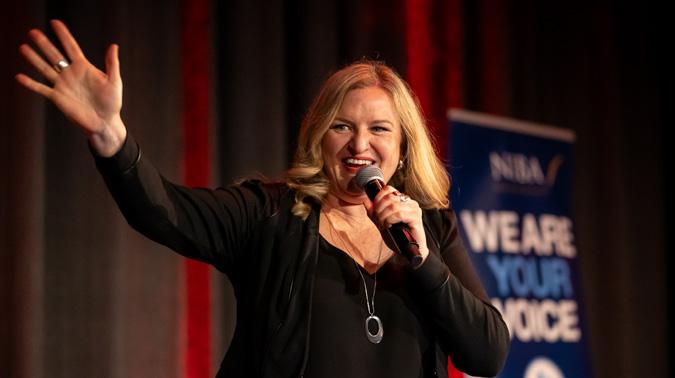


Check out what’s happening close to you and register vianiba.com.au/events
2024 NIBA NSW BUSINESS INTERRUPTION MASTERCLASS & NETWORKING EVENT
WHEN: 22/05/2024
Join us for New South Wales’ Business Interruption Masterclass & Networking Function, delivered by Martin Minett’s Director, Rob Martin.
As an expert in the preparation of business interruption insurance (and property damage) claims, Rob will share his wealth of knowledge in this interactive session with “real life” business interruption insurance claims.
2024 VIC NIBA REINSURANCE 101: DECODING THE RISK GAME FOR YOUNG PROFESSIONALS
The first state event of the year was a success with almost 50 participants and great feedback.
“Siggy was an awesome and engaging presenter! The presentation overall was very informative.” These were just some of the comments participants made in the NIBA feedback survey.
Thank you to everyone who attended, and we look forward to seeing you at the next Victorian event.
SAVE THE DATES –
2024 NIBA GALA LUNCHES
10/07/2024
NSW Gala Lunch
12/07/2024
WA Gala Lunch
17/07/2024
QLD Gala Lunch
19/07/2024
VIC Gala Lunch
26/07/2024
SA Gala Lunch
The aim of the initiative is to promote insurance broking as a career, attract more people into the profession and increase resources and information available about the profession.
Do you have ideas or thoughts on what we should include? Have you seen something similar being done well elsewhere?
how you can get involved?
Please email or contact your state NIBA Committee representative.

Every business is at risk of cybercrime. So, why isn’t the SME market jumping to protect itself?
By MARTIN WANLESSIf you’re under any illusions about the scale of the cyber threat to Australian businesses, consider this. Cybercrime costs are forecast to reach US$9.5tn this year, and the global spending on cyber security and risk management is projected to hit US$215bn.
And, unsurprisingly, the tactics and techniques cybercriminals are using become more and more sophisticated, seemingly by the day.
In February, for example, deepfake technology was used to impersonate the chief financial ofcer and other employees of a Hong Kong-based multinational. The deepfake video call was compelling enough to persuade a finance worker to transfer approximately US$25m – highlighting not only the scale of the problem and the vulnerabilities in existing security protocols, but the fact that we cannot automatically trust what we see, hear or read online any longer.
It’s big business, awareness is high – and insurers are at the forefront of the battle.
“WHILE AWARENESS IS HIGH, THAT HASN’T NECESSARILY YET TRANSLATED INTO INSURANCE COVERAGE. PENETRATION FOR CYBER INSURANCE IN AUSTRALIA IS STILL AT VERY LOW LEVELS.”
– ANDREW SIMPSON, REGIONAL MANAGER VICTORIA/TASMANIA AT RESILIUM INSURANCE BROKING
“People are definitely more aware of the cyber threat today than they were a couple of years ago,” says Troy Filipcevic, CEO and Founder of Emergence Insurance.
“The high-profile data breaches we had in Australia have ensured that everyone is aware to some degree. However, while awareness is high, that hasn’t necessarily yet translated into insurance coverage. Penetration for cyber insurance in Australia is still at very low levels.”
Andrew Simpson, Regional Manager Victoria/Tasmania at Resilium Insurance Broking, says, “Having a specific cyber policy is now becoming the norm, although perhaps not quickly enough. Our stats show that the number of SME businesses through our network having any type of cyber coverage is well under 5% – although that in itself has grown by close to a third over the last 12 months.”
Rob Collyer, Underwriting Development Manager at Nova Underwriting, warns that with the rise in frequency and cost of cyber claims, a standalone cyber policy is essential.
“Endorsements provided under other policies such as management liability ofer restricted cover and are usually
sub-limited to low limits, while many insurers now incorporate a cyber exclusion into their wordings.”
Cyber insurance will soon be as important and prolific as management liability, believes Todd Ferguson, National Manager – Broker Development at Aviso Broking.
“The move away from ‘cyber inclusions’ in management liability and D&O policies has been happening for some years now. Once upon a time it seemed that was the only way that as brokers/professional risk advisers we could obtain some peace of mind that at least our clients had some form of cyber insurance protection.
“These days, it is broadly understood and agreed that any form of cyber coverage inclusion on a non-cyber-specific policy – such as management liability or D&O –is only going to provide rudimentary coverage (at best) and therefore is not in the client’s best interest. Discussions have evolved in terms of cyber insurance previously being ‘nice to have’, to now very much being ‘must-have’.
“That said and very broadly speaking, take-up rates remain low and less than 5% of all possible commercial customers to this
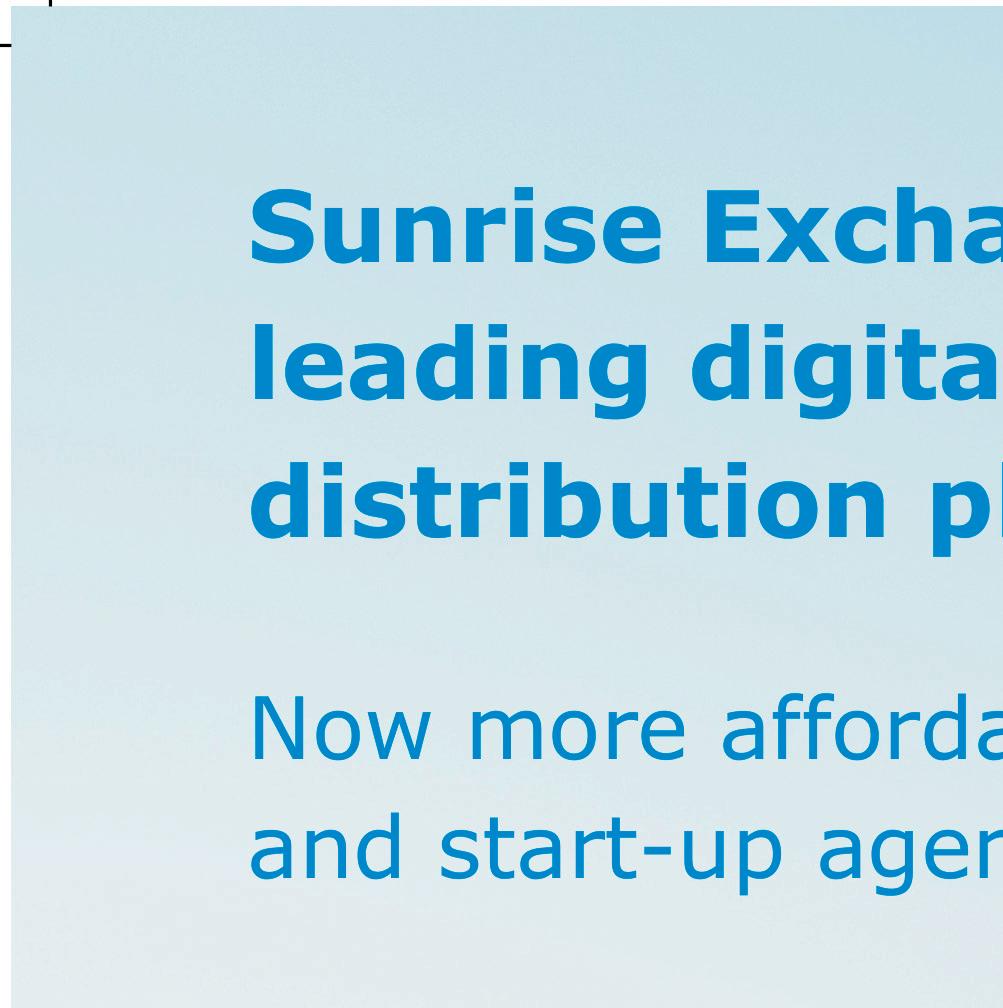

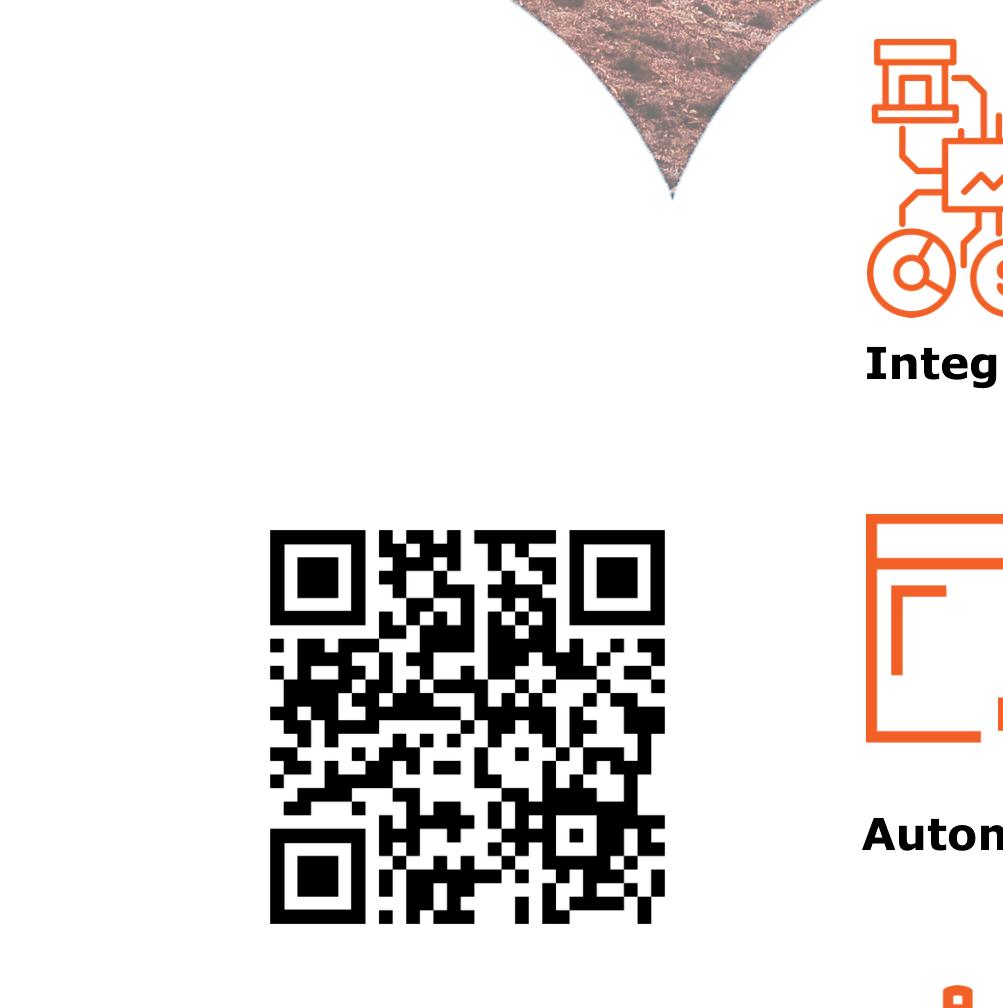
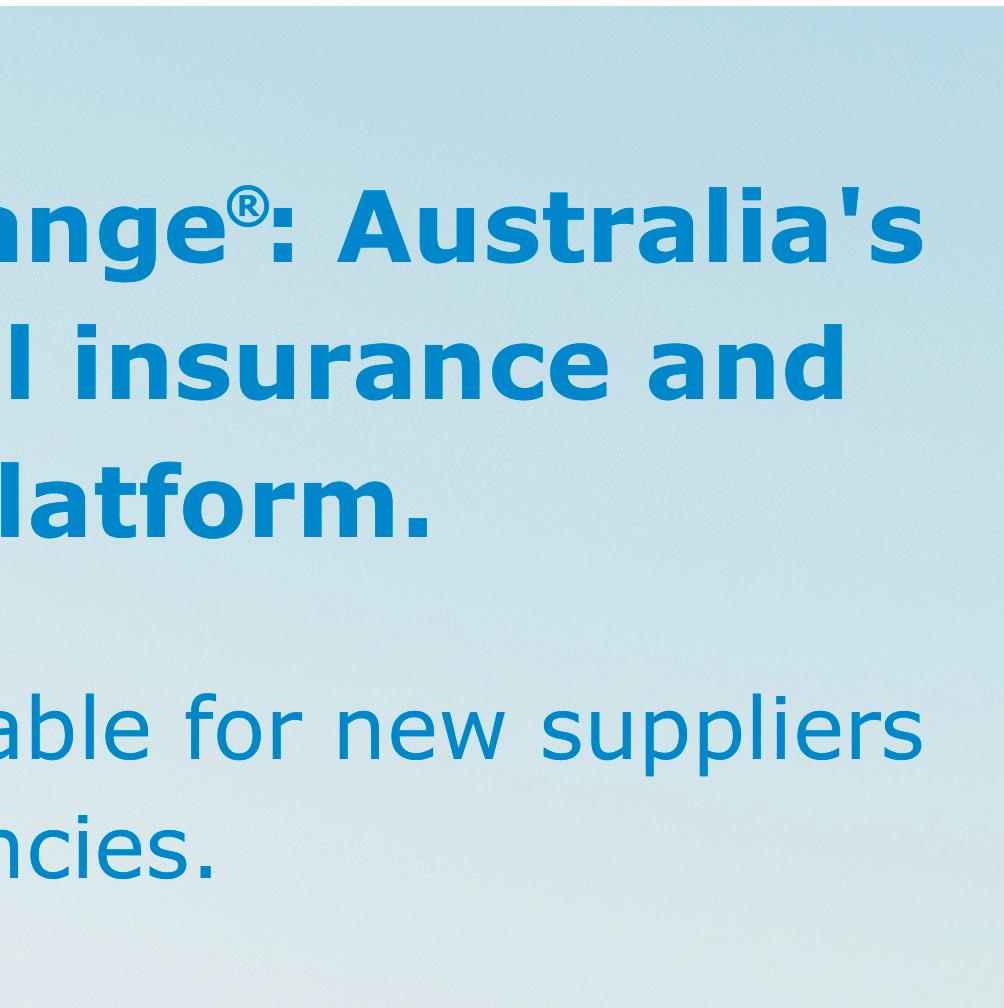

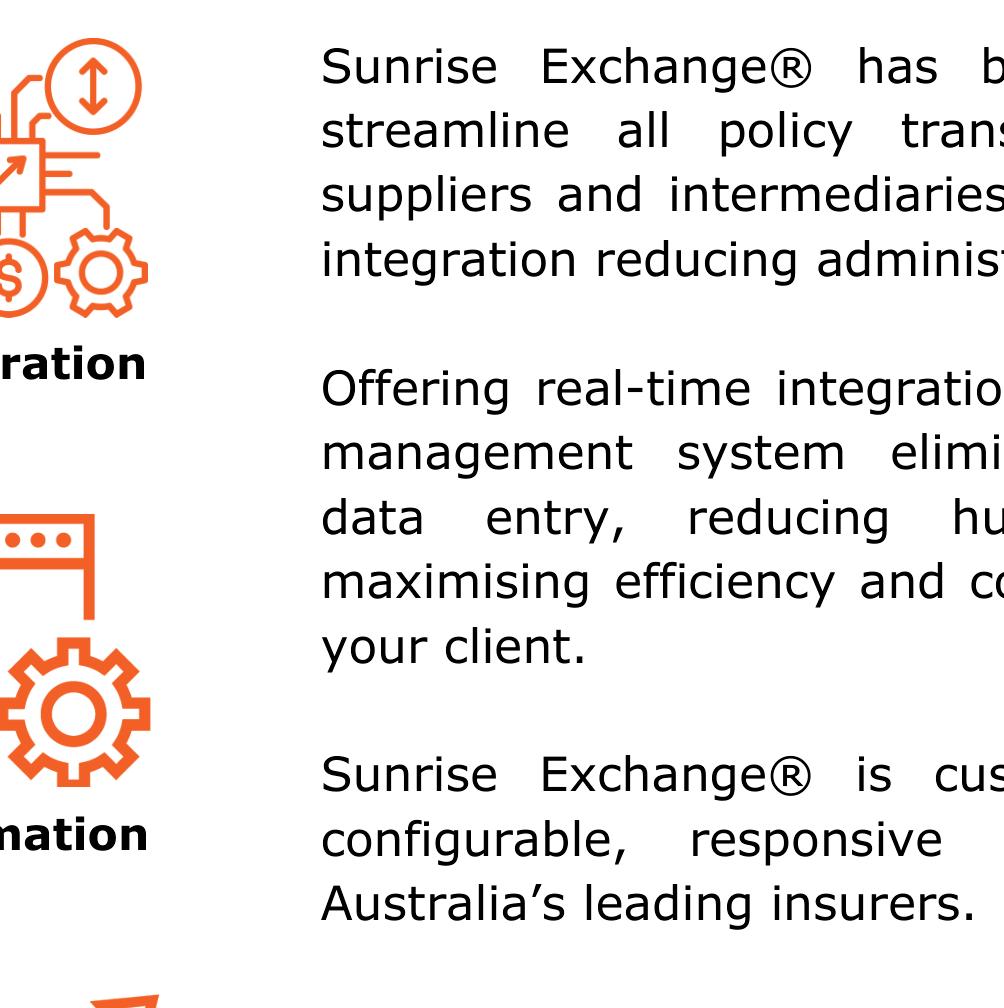
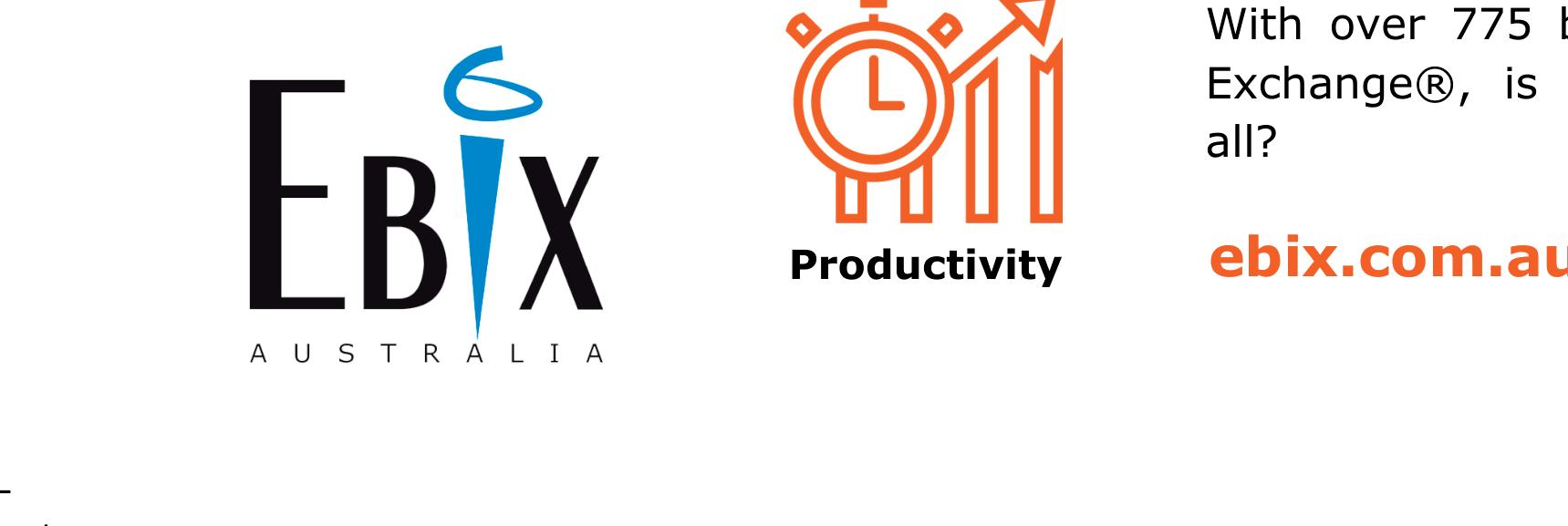




day have a comprehensive, standalone cyber insurance policy. So in that sense, there is still a lot of work to be done in terms of educating our customers and ensuring they have all the information they need in order to make an informed purchasing decision.
“Eventually, I see cyber insurance becoming as important and prolific as management liability insurance, which probably only 15 years ago was considered a ‘nice to have’ insurance product. Whereas in 2024, most businesses (arguably) consider it a ‘must-have’ product. The landscape around cyber insurance, I believe, will be vastly diferent by 2035.”
Many insurance policies are reactive. Water damage to your shop floor? Make a claim. Accident in one of the fleet vehicles? Make a claim.
Cyber’s diferent, which is why that shift from add-on to standalone policy is really ramping up.
“Cyber insurance is no longer just issuing a 12-month policy – it’s doing whatever you can to keep the client safe and keep watch over the client,” says Colin Pausey, Chief Operating Ofce at Emergence.
“For example, we provide 24/7 threat monitoring and dark web monitoring, so if there are vulnerabilities out there, we can tell our clients immediately, and help them mitigate that threat.
“We’re not just providing insurance, but providing a service to do everything we can to keep them out of trouble. It’s not a foolproof situation, but that’s one of the diferentiators between where the market was 12 to 18 months ago, and today.”
Richard Smith, Head of Cyber at Blue Zebra, agrees.
“Cyber insurance is not just about financial compensation – the policies usually contain emergency response capability, which many SMEs find priceless in their hour of need.
“Quite simply, cyber insurance is driving improved security in the Australian
Todd Ferguson offers some tips for brokers to share with clients.
• Set strong passwords and PINs for all devices and accounts.
• Use two-factor or multi-factor authentication to secure all online accounts.
• Consider the source! Treat ALL unsolicited emails with scepticism.
• Slow down. Consider putting policies/ procedures in place on how to deal with urgent executive requests (especially if they are away from the office travelling).
• Train, train, train and train again. When it comes to cyber/IT security awareness, education and knowledge, there’s no such thing as too much training.
• Do consistent and regular phishing email tests of your own staff
• Review existing processes, procedures, verification and separation of duties for financial transfers.
• Review, refine and test your incident management phish reporting systems.
• Review access controls – does everyone with a login need it?
• Patch systems and software frequently and install the best antivirus software your business can afford!
“THERE IS A PERCEPTION THAT CYBER ATTACKS ONLY HIT THE TOP END OF TOWN, BUT THAT IS ONLY BECAUSE THE MEDIA FOCUSES ON THESE INCIDENTS.”
– KATE MARTIN, SENIOR MANAGER AT AMICUS INSURANCE SERVICES

business community. For years, the cyber security industry has struggled with the enormous challenges associated with improving the security of businesses within Australia. The cyber insurance paradigm is changing all that.”
Think cyber breaches and claims, and you can be forgiven if your mind wanders to the top end of town. Large-scale cyber attacks afecting big-name brands are newsworthy alright – but the threat of a cyber attack is very, very real for every business out there.
“I can’t think of a business today that doesn’t rely on technology in some way, shape or form,” says Filipcevic.
“Some brokers still think that because a business isn’t online, isn’t in the technology industry or doesn’t hold copious amounts of personal information, they won’t talk about cyber insurance. From our claims experience, they should be talking to everyone, because every single business is a potential target.”
“SOME BROKERS STILL THINK THAT BECAUSE A BUSINESS ISN’T ONLINE, ISN’T IN THE TECHNOLOGY INDUSTRY OR DOESN’T HOLD COPIOUS AMOUNTS OF PERSONAL INFORMATION, THEY WON’T TALK ABOUT CYBER INSURANCE.”
– TROY FILIPCEVIC, CEO AND FOUNDER OF EMERGENCE INSURANCE
Kate Martin, Senior Manager at Amicus Insurance Services, agrees.
“There is a perception that cyber attacks only hit the top end of town, but that is only because the media focuses on these incidents.
“In reality, cyber threat actors run a volume business. They have a scattergun approach and take any opportunity to exfiltrate data and/or demand ransoms –and this includes hitting SME businesses. The role of the broker is to address misconceptions and inform clients on the very real risk applicable to them.”
Brokers have a hugely important role in helping clients understand the risks they face, and Collyer says, “SMEs have a way to go in understanding the exposures they face. It is often not until they directly experience an attack, or they know someone who has, that they seriously consider putting processes in place to protect themselves and reduce their exposures.
“Brokers are doing a great job in educating their clients as we continue

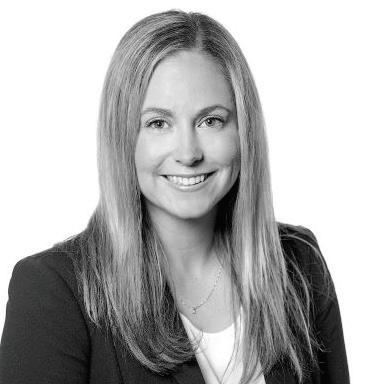



An NFP experienced a phishing attack after a volunteer clicked on a link, providing the hacker with access to 18,000 members’ personal details. Names, addresses, and working with children checks were all compromised.
Response: Upon discovering the breach, the company immediately notified its insurance provider and activated their cyber insurance policy. The insurance company conducted an investigation to assess the extent of the breach and the damages incurred.
Resolution: After verifying the validity of the claim and assessing the damages, the insurance company agreed to pay out the claim. The payment covered various expenses, including:
• Forensic investigation costs to determine the cause and scope of the breach.
• Notification costs to inform affected volunteers about the breach and provide assistance such as credit monitoring services.
• Legal expenses associated with regulatory investigations and potential lawsuits.
• Reimbursement for financial losses incurred due to fraudulent transactions or identity theft suffered by affected customers.
• Costs to improve cyber security measures and mitigate the risk of future attacks.
This is just one example of how a cyber insurance claim might be processed and paid out. The specifics of each claim can vary significantly based on factors such as the nature of the breach, the terms of the insurance policy, and the response measures taken by the insured company.
Case study from
Andrew Simpson, Resilium Insurance Brokingto see an uptake in new business in the cyber insurance space, as well as an improvement in risk management processes in place through responses in the proposal forms.
“It is essential they keep up to date on the latest threat landscape and continue to drive this home, together with advising the clients of the privacy/security risk management processes they need to put in place to reduce their exposure. Keeping themselves and their clients up to date on the latest regulatory requirements SMEs face is also necessary.”
Among the many cyber challenges we all face is the continued evolution of threats, with cybercriminals becoming increasingly more sophisticated.
“Cyber threat actors are impressively cunning and innovative,” says Martin. “Cyber threats are developing in sophistication, diversity and impact. As a society we are evolving in our adoption of automated processes, integration of AI and the Internet of Things. This provides a rich tapestry of opportunity for bad actors to infiltrate and wreak havoc.

“SMES HAVE A WAY TO GO IN UNDERSTANDING THE EXPOSURES THEY FACE. IT IS OFTEN NOT UNTIL THEY DIRECTLY EXPERIENCE AN ATTACK, OR THEY KNOW SOMEONE WHO HAS, THAT THEY SERIOUSLY CONSIDER PUTTING PROCESSES IN PLACE TO PROTECT THEMSELVES.”
– ROB COLLYER, UNDERWRITING DEVELOPMENT MANAGER AT NOVA UNDERWRITING
“For example, AI and machine learning are being utilised by bad actors to vastly increase their efciencies in circumventing cyber security measures.”
Smith adds, “Ransomware remains a prevalent form of cybercrime impacting Australian businesses, but the model is constantly developing. There has been a decline in the historical encryptiontype attack and an increase in data theft extortion attempts, where large amounts of data are exfiltrated during breaches. This brings a diferent set of problems for ransomware targets and greater threats for their clients and customers.”
It’s a constantly changing threat that simply cannot be ignored.
The difculty with the cyber threat is it’s unseen. It’s out in the ether. It doesn’t exist – until it does.
“Part of the problem is that it’s intangible,” says Filipcevic.
“People understand things they can touch and feel. They can visualise a building burning down, or a window being smashed or stock missing from
their store – but the cyber threat is
something people cannot visualise. It’s an intangible asset. They cannot imagine the extent of the damage of a cyber attack, can’t understand the consequences, so put it to one side.”
Helping business owners understand that very threat, however, is a fundamental part of all of this. And it’s hugely important – because, unlike many other forms of business-related insurances, cyber policies aren’t just protecting individual businesses; they’re protecting thousands – in some cases millions – of customers, as well as the countless other businesses they deal with.
Simpson says that while awareness of cybercrime may be higher than ever, the actual threats aren’t well-enough appreciated.
“I don’t think the threats businesses face are well understood at all, nor is the impact to their business from a phishing or malware/ransomware attack where there’s the potential for both theirs and their client’s data to be accessed and used for financial gain. As brokers, our role is to educate, educate and educate.”
Smith agrees that, while there is awareness amongst SMEs, there is a lack of application to the risk.
“This is where brokers have the opportunity to play a strong advisory role,” he says. “Brokers need to keep their advice relevant to their client, as they have diferent types of exposures. For example, online retailers will hold large amounts of customer data, so may be heavily reliant on their payment processor provider, whereas manufacturers may not hold much data, but may have concerns about interruption to their business.”
When looking for cyber policies for clients, Martin says it’s important to look beyond limits and coverage.
“Of course, limits and coverage are important, but I certainly look into the insurer’s emergency support process and suite of providers. The peace of mind that comes from knowing there is a team
of experts ready to go when a crisis hits is what clients are seeking.
“I have found recently that regularly working with clients to keep cyber CAPEX improvements a priority is useful when it comes to placement or renewal time.
“Demonstrating the client’s journey and commitment to implementing projects such as multi-factor authentication (MFA) shows underwriters that the clients are moving in the right direction risk-wise. Rather than a straight up decline, early engagement and demonstrating commitment has led to cover being placed.”
Filipcevic agrees that cyber policies need to be viewed diferently to traditional business insurance that people are more familiar with.
“We need to look at the totality of what’s being provided, both from a limits perspective but also from a service perspective. A good cyber policy,
with everything that comes with it, will essentially wrap its hands around the whole business, protecting the business and helping the people in the business to become better cyber citizens.
“Having people in the background, monitoring 24/7 to protect the business, is a huge part of the risk mitigation –and then you have the experts on call and the insurance cover there if something does happen.”
For every single client, cyber is a huge, huge threat. Regardless of their size, regardless of their value, they’re at risk. And the repercussions of a breach can spread far beyond the confines of their business.
By understanding the enormity of the risk they face, and the protections they need in place, they can help build defences against cyber attacks – protecting their livelihoods as well as their customers.
One of our clients (who has a cyber insurance policy with one of Australia’s leading cyber insurers) rang me to advise an issue with one of their clients. The situation was that a brand-new client to the business had ordered $20,000 worth of equipment from our insured, who, as part of their own internal risk management strategy, only provided delivery of goods to new customers following confirmation of payment being received. It had been 30 days since this new client had made the order and been issued with an invoice, and so our client chased them up.
The client advised they had paid some weeks earlier. The customer and our client got together to try to problem solve this situation and figure out where the money had gone, and it turned out that our client’s invoice to their client had been hacked by threat actors who had changed the phone number for the business and bank account details on the invoice, to their own.
This new customer had thus unfortunately, paid $20,000 to the threat actors and not our client. Obviously no issue for our client because they hadn’t released the goods but their question to us was: whose insurance covers this? At the time of the incident, their insurance provider wouldn’t cover the theft of funds suffered by their new client. However, our only advice to the client was that unfortunately, unless their client had cyber insurance of their own covering such an incident, then sadly they were $20,000 out of pocket.
When the client next spoke to us about the matter they confirmed they had called and spoken with the customer (another SME business owner) who informed them that their Broker had indeed pitched cyber insurance to them some months previously but they had decided against taking out the cover…
Case study from Todd Ferguson, Aviso Broking

The challenges for SMEs keep coming – but brokers are playing a critical role in protecting Australian businesses against present and emerging risks.
By MARTIN WANLESS

The small and medium enterprise (SME) sector in Australia is significant, accounting for 97.3% of 2.5 million-plus businesses, and employing around 8 million of the country’s approximately 12 million workers.
Without raking over old ground, the past few years have been tough for the SME sector. From pandemics to inflation, natural disasters and employment difculties to cybercrime, the challenges have kept on coming.
When it comes to SME insurance specifically, rising costs are impacting claims and therefore, afordability – and brokers are playing an ever more important role for SME businesses.
“Over recent years, SMEs have moved from being insurance cynics to security seekers,” says Anthony Pagano, Head of Distribution at Vero.
Vero’s annual SME Insurance Index Report for 2024 shows that 82% of SMEs agree with the sentiment ‘being insured gives me peace of mind’, compared with 67% in 2019, while 40% of respondents agreed that recent events have made them question their cover, compared to 23% in 2014.
“There’s been a real change in the mindset of SMEs. They want to know that
they have the right cover in place, and want to be involved in making the decisions that are protecting their business.”
This shift is understandable, given the events that have occurred over the past decade – and the reality is that those challenges will likely keep on coming.
Todd Ferguson, National ManagerBroker Development, Aviso Broking, says, “The increasing frequency and severity of natural disasters in this country continues to pose significant risks to SMEs and is heavily influencing buying behaviour.”
With the impact of inflation afecting almost everything, including claims costs, some SMEs in weather-afected areas are being forced into making difcult choices, says Ferguson.
“Insurance against natural disaster events can be expensive and, in many cases, quite difcult to obtain. We’re finding that businesses in many bushfire and/or flood prone areas are more often than not choosing not to insure against even the most basic of risks, given the extreme cost of doing so in some cases.”
Theo Pitsikas, Head of Digital – General Insurance, Zurich Australia & New Zealand, says SMEs – and the wider insurance
“BUSINESSES ARE CLAIMING MORE NUISANCE ISSUES. WHERE A BUSINESS MAY HAVE PREVIOUSLY HELD A SURPLUS OF CASH AND CHOSEN TO SELF - INSURE CERTAIN EXPOSURES , NOW, DUE TO HIGH PRESSURES , THEY ARE TRYING TO RECOVER THESE SMALLER LOSSES.”
– CHELSEA NORVAL, GENERAL MANAGER OF CPS GENERAL INSURANCE AGENCIES





“THE INCREASING FREQUENCY AND SEVERITY OF NATURAL DISASTERS IN THIS COUNTRY CONTINUES TO POSE SIGNIFICANT RISKS TO SMES AND IS HEAVILY INFLUENCING BUYING BEHAVIOUR.”
– TODD FERGUSON, NATIONAL MANAGER –BROKER DEVELOPMENT, AVISO BROKING
industry – are increasingly focusing on the important role of resilience.
“Beyond the direct impact extreme weather events have on businesses –including disruption to productivity, supply chains and extensive damage – they also present larger industry-wide challenges. This has made resilience an important and growing focus area.”
While the cost of claims has been impacted due to inflation, Chelsea Norval, General Manager of CPS General Insurance Agencies, has noticed an increase in claims being made in general, as businesses keep a close eye on every dollar.
“Businesses are claiming more nuisance issues. Where a business may have previously held a surplus of cash and chosen
to self-insure certain exposures, now, due to high pressures, they are trying to recover these smaller losses,” she says.
Theft claims, says Ferguson, have increased in line with inflation.
“The onset of interest rate rises and higher cost of living pressures – among other things – over the past 18-months have correlated with an increased number of burglary/theft and attempted break-andenter claims our team have been seeing.
“As brokers, we’re constantly discussing risk management and mitigation with our clients, specifically around how best to secure their assets, but ultimately, where there’s a will, there’s a way, and desperation causes people to go to extreme lengths.” And that risk mitigation-centred approach is increasingly important as brokers across the country embrace the
As with almost every business sector, technology’s becoming more and more prevalent across SME businesses, as well as in brokerages and insurers – and the use of AI opens up further risk areas to be mindful of.
Ferguson says, “The arrival of AI introduces several new and modern risks for SMEs, including cybersecurity threats, legal issues, compliance issues and scams. As AI technology evolves, increased risk and challenges will face consumers, SMEs and insurance companies alike – and, as with anything, along with obstacles and challenges, there will no doubt be opportunities.”
Insurance companies and brokers are increasingly looking at how technology can improve everything from process efficiencies to pricing risks.
Pagano says, “Businesses need to fully understand what the use of technology and AI means from a data security perspective – what exposure is being created, and how can that affect the business? For example, if a server gets hacked, does that impact the production of products in a factory?
“Businesses often focus on the benefits – process efficiencies and getting more customers, for example, and don’t pay too much attention to the potential risks, so it’s another important conversation for brokers to have with their clients.”


role of a trusted adviser, and insurers request more detail around how businesses are protecting themselves.
“We are seeing more insurers wanting risk management tools, and clients are looking at ways to improve and mitigate,” says Norval.
“For example, the installation of fire protection and detection measures, assessing when claims occur and why to determine if there are any risk patterns.
“Our clients are proactively looking at ways they can mitigate risks and stay abreast of current events by getting upto-date risk surveys, engaging targeted industry consultants and being more aware of the exposures facing their specific industries.”
For many SMEs, Pagano says there’s a real need to flip the mindset of ‘it’ll never happen to me’ to ‘it could happen to me’.
“There’s a real opportunity to improve on business continuity planning,” he says.
“We need to help SMEs understand what they would do next – we can better prepare businesses through education and training to understand at what point things impact them. Is it a direct impact, or is your supply
“BEYOND THE DIRECT IMPACT EXTREME WEATHER EVENTS HAVE ON BUSINESSES –INCLUDING DISRUPTION TO PRODUCTIVITY, SUPPLY CHAINS AND EXTENSIVE DAMAGE –THEY ALSO PRESENT LARGER INDUSTRY-WIDE CHALLENGES. THIS HAS MADE RESILIENCE AN IMPORTANT AND GROWING FOCUS AREA.”
– THEO PITSIKAS, HEAD OF DIGITAL –GENERAL INSURANCE, ZURICH AUSTRALIA & NEW ZEALAND
chain afected? If so, how do you mitigate that? The impact of a natural disaster is wide-reaching, so helping SMEs understand the efect on their business and their insurance is important.”
Ferguson agrees business continuity planning is crucial and has seen an upward trend in desire from SMEs, as well as requests from insurers.
“Business continuity planning is definitely becoming more popular and is highly favoured by many insurers,” he says.
“They are more interested in working with clients that take risk management seriously enough to invest in a business continuity plan.”
When working with SME clients, says Pitsikas, it’s key for insurers and brokers to keep that customer view close to mind.
“It is critical that insurers and brokers remain close to key trends impacting customers to ensure their needs continue to be met,” he says.
“This includes holding a customer lens to every decision made. What is in it for the customer, and how can we make their lives easier?”

Risk mitigation opportunities for SMEs are wide-ranging, and for Ferguson, risk profiling, contract review services, understanding a client’s regulatory compliance, disaster preparedness and cybersecurity measures all come into the equation.
In the SME market, Pagano believes brokers are on the cusp of truly establishing themselves as an indispensable component of the business.
“Once upon a time, it was purely a transaction, and the customer didn’t want to make insurance part of the conversation. It was like a utility bill. Now, from an afordability and accessibility perspective, it’s becoming more and more important to more and more businesses. The awareness is there now, and the challenge for brokers is to harness that and use that opportunity to further embed themselves with customers, keep building that momentum, become even more relevant, and ofer better risk protection than ever before.”
Cyber is a huge issue facing SMEs. However, in this article, we’ve deliberately not delved into it as we have another article in this issue on cyber insurance (see page 24). This case study, however, illustrates the risks SMEs are facing every day.
Todd Ferguson, National Manager – Broker Development, Aviso Broking, says, “One of our large North Queensland clients had a massive cybersecurity intrusion in 2020, and subsequently, were held to ransom by the hackers.
“Just months before, we had finally convinced them to buy cyber insurance, after many years of discussing this critical
insurance with them. They had been reluctant for so long because they had adopted the attitude of ‘it will never happen to us.’”
“The sum total of that cyber claim event was in excess of $600,000. All the broker’s efforts – including years of discussing risk management and finally convincing the client to buy cyber insurance – paid off, which was unbelievable. Without the cyber Insurance in place, the likelihood is that our client’s SME business would have been critically damaged financially, and possibly unable to recover.”

NIBA launched the 2022 Insurance Brokers Code of Practice on 1 March 2022, and it came into effect on 1 November 2022. It is important that all members have implemented the necessary policies and procedures to comply with their new Code obligations. A number of resources are available on the NIBA website to assist members in implementing the Code.


Having a QPIB designation assures my clients that their business is in the hands of a trusted, insurance broking professional and that I continue to develop my skills.







Wellington Underwriting Agencies specialise in labour hire/recruitment, complex liability risks and niche property solutions.
Labour Force includes Broadform Liability, Professional Indemnity and Management Liability and has been developed for:
• labour hire companies
• recruitment companies
• group training and registered training organisations
Our Combined General Liability wording has been tailored for complex risks including:
• construction
• manufacturing
• rail
• resource sector; and
• other hard to underwrite risks
Wellington’s Property capabilities are focussed on niche exposures including:
• catastrophe-exposed properties
• mining sector Contact our Underwriters today or visit our website at www.wellingtonu.com.au
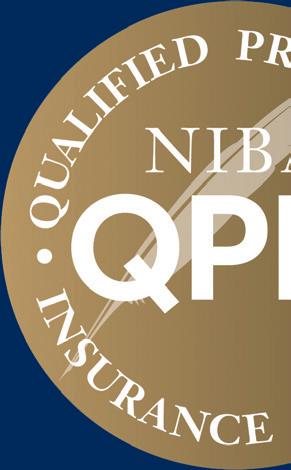





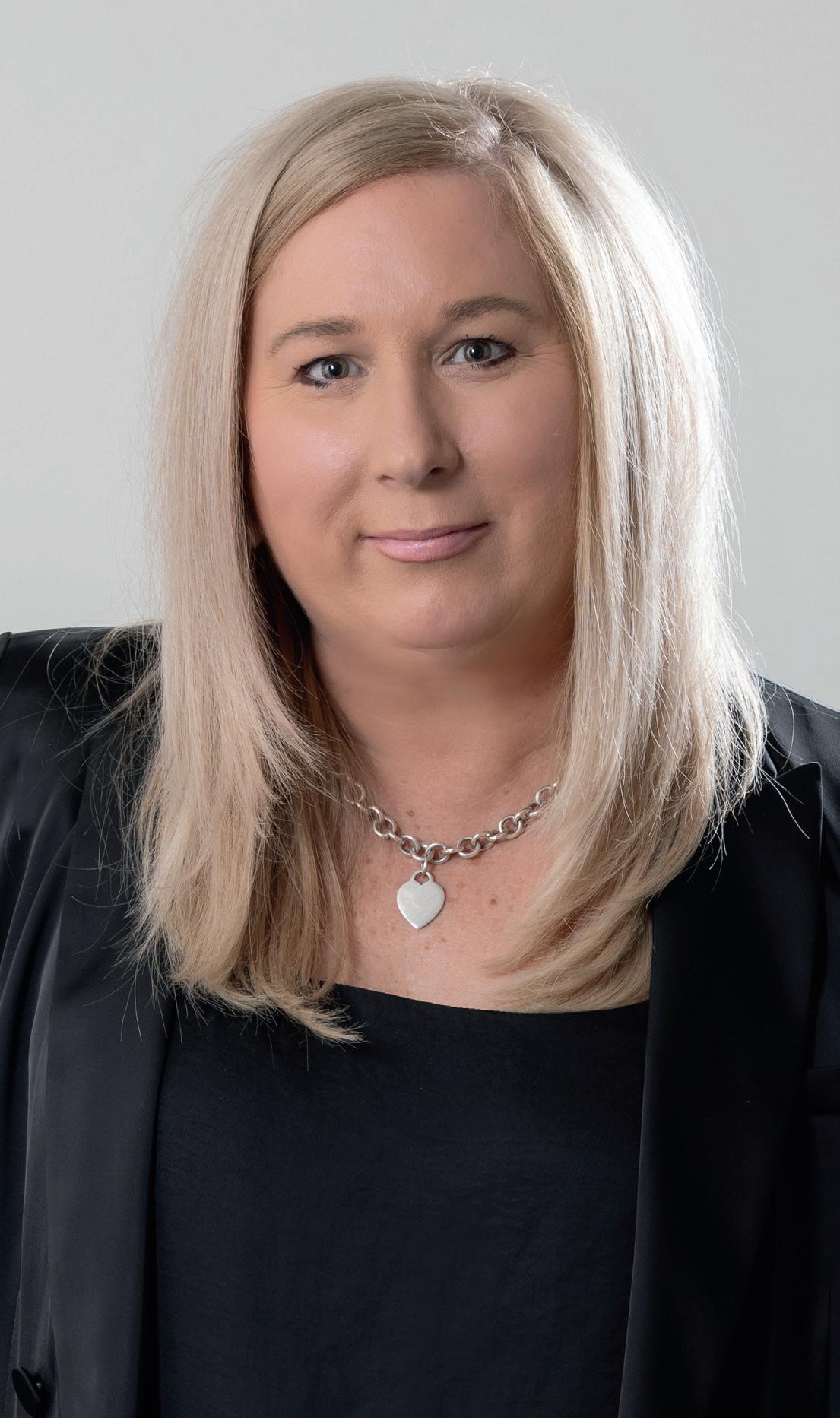










Key Liability Occupations:
• Alternative & Complementary medicines
• Automotive
• Biotechnology
• Clinical Trials / Research
• Cosmeceuticals / Nutraceuticals
• Defence – machinery, weaponry & protective equipment
• Life Science / Pharmaceuticals
• Medical & Surgical Devices (including invasive implants)
• Medical Equipment / Products
• Medicinal Cannabis
• Mining
• Rail – Products, Maintenance, Locomotive Engineering, operators, Rolling Stocks & Engine Manufacturers
• Universities
• Veterinary Medicines
• Accountants
• Architects
• Engineers
•
• Insurance Brokers / Underwriting Agencies
• Law Firms
• Management Consultants
• Miscellaneous Risks
• Real Estate Agents
• Universities
• Valuers










• Print publications including Insurance Adviser
• e-Newsletters including the weekly Broker Buzz newsletter
• NIBA website
• Need A Broker website
• Events – NIBA Annual Convention


























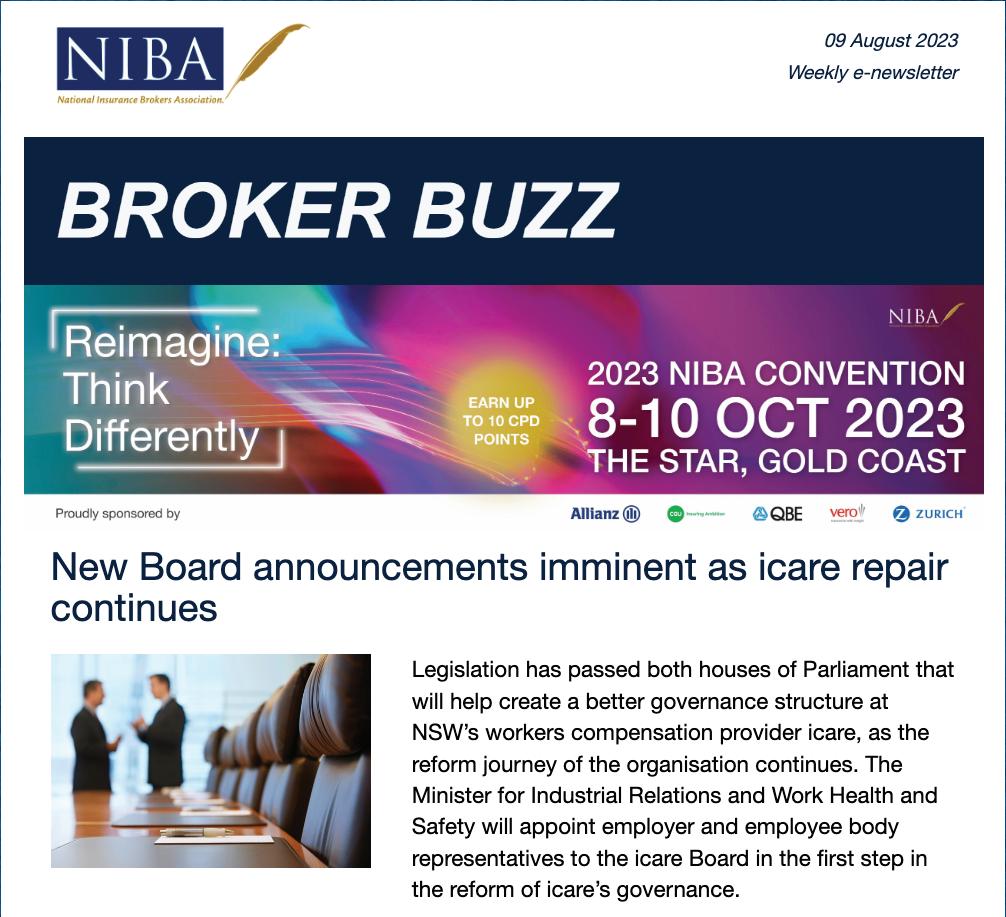





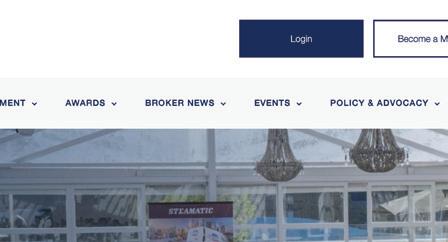




The following is a list of AM Best Financial Strength Ratings (FSRs) assigned to insurance companies in Australia and New Zealand.
Ratings as at 19 March 2024
Contact: Mr. Rob Curtis
Co-CEO & Managing Director
A. M. Best Asia-Pacific (Singapore) Pte Ltd.
Tel: +65 9633 6118
Email: rob.curtis@ambest.com
Rating Disclosure: Use and Limitations: A Best’s Credit Rating (BCR) is a forward-looking independent and objective opinion regarding an insurer’s, issuer’s, or financial obligation’s relative creditworthiness. The opinion represents a comprehensive analysis consisting of a quantitative and qualitative evaluation of balance sheet strength, operating performance and business profile or, where appropriate, the specific nature and details of a security. Because a BCR is a forward-looking opinion as of the date it is released, it cannot be considered as a fact or guarantee of future credit quality and therefore cannot be described as accurate or inaccurate. A BCR is a relative measure of risk that implies credit quality and is assigned using a scale with a defined population of categories and notches. Entities or obligations assigned the same BCR symbol developed using the same scale, should not be viewed as completely identical in terms of credit quality. Alternatively, they are alike in category (or notches within a category), but given there is a prescribed progression of categories (and notches) used in assigning the ratings of a much larger population of entities or obligations, the categories (notches) cannot mirror the precise subtleties of risk that are inherent within similarly rated entities or obligations. While a BCR reflects the opinion of A.M. Best Rating Services, Inc. (AMBRS) of relative creditworthiness, it is not an indicator or predictor of defined impairment or default probability with respect to any specific insurer, issuer, or financial obligation. A BCR is not investment advice, nor should it be construed as a consulting or advisory service, as such; it is not intended to be utilised as a recommendation to purchase, hold or terminate any insurance policy, contract, security, or any other financial obligation, nor does it address the suitability of any particular policy or contract for a specific purpose or purchaser. Users of a BCR should not rely on it in making any investment decision; however, if used, the BCR must be considered as only one factor. Users must make their own evaluation of each investment decision. A BCR opinion is provided on an “as is” basis without any expressed or implied warranty. In addition, a BCR may be changed, suspended, or withdrawn at any time for any reason at the sole discretion of AMBRS.
*Denotes FSR is under review with developing implications.
The following is a list of S&P Global Ratings insurer financial strength ratings assigned to insurance companies in Australia and New Zealand. Ratings as at 15 March 2024
Contact: Craig Bennett, S&P Global Ratings, 03 9631 2197